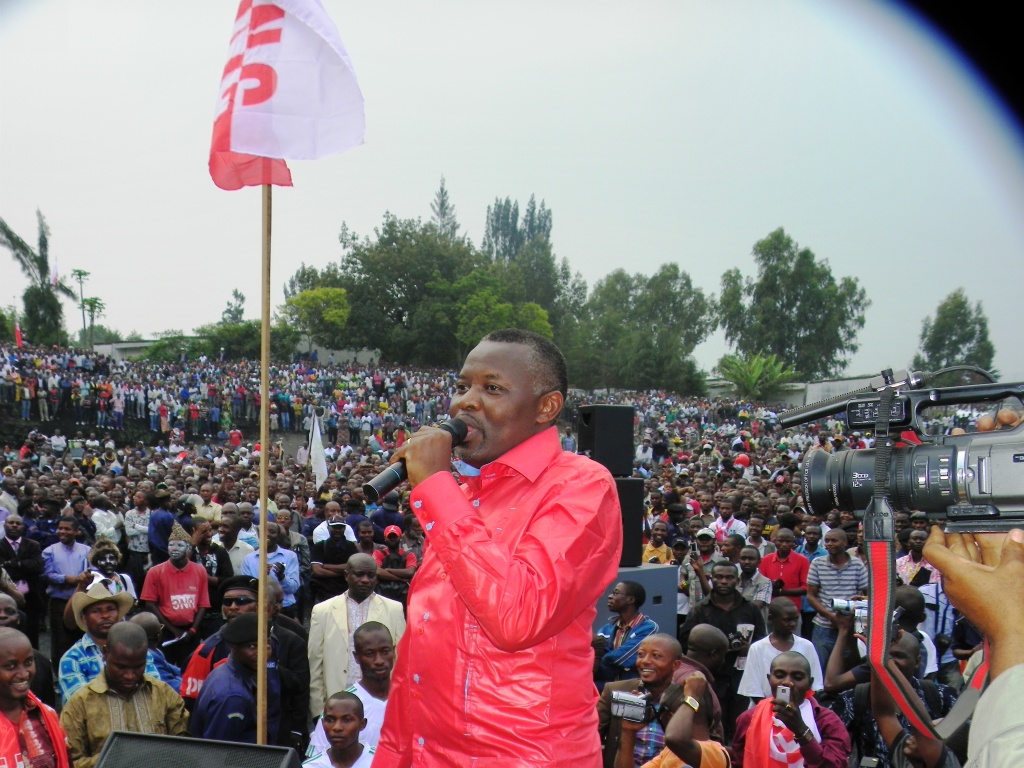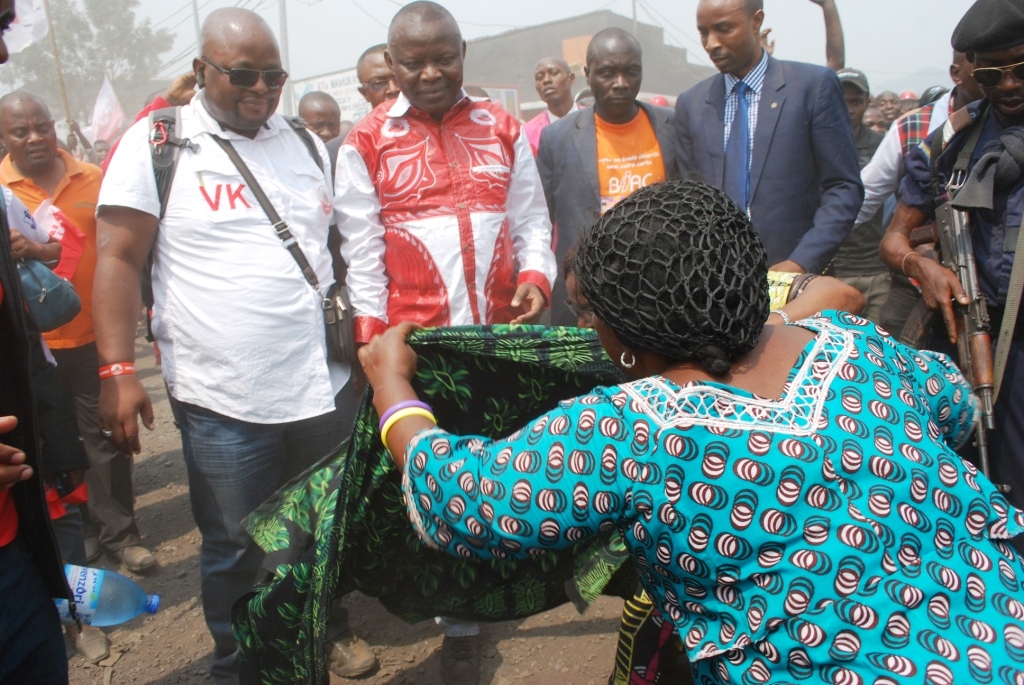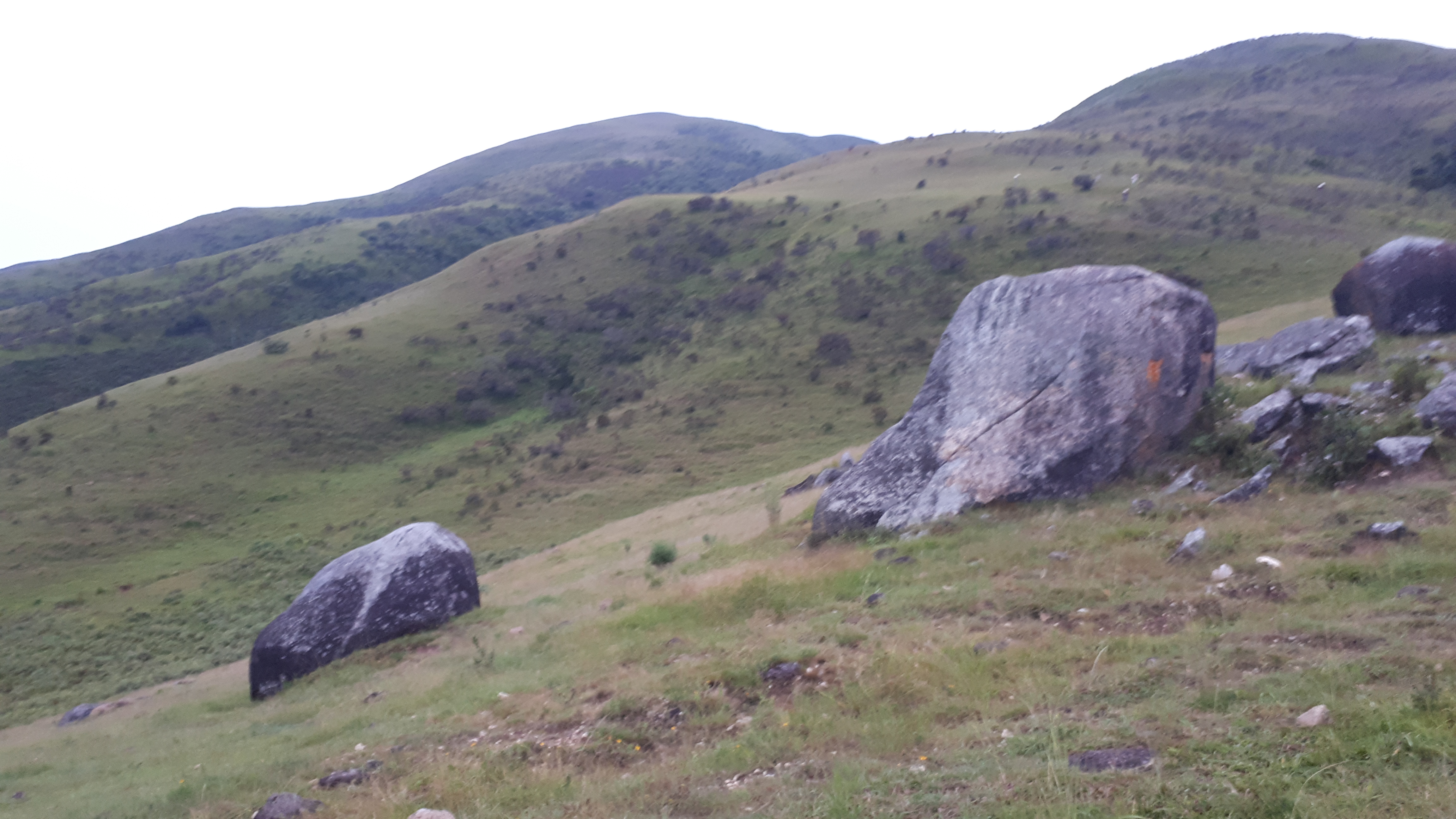
Crowd gathering and populism speeches may not express that political aspirations and intentions will be achieved. In a specific case of the Democratic Republic of Congo (DRC), specifically in Eastern part, most of people have expected to get things changed for a while. Among those expecting changes, youth are at the forefront as the most affected by recurring crises; hence falling into unemployment. Additionally, youth in DRC had become a vulnerable group facing enrollment into armed groups, unemployment and different socio-economic problems. their future is likely uncertain if nothing is done to support their livelihood. The call of Vital Kamerhe portraying himself as Lula da Silva wouldn’t lack attendees as it had happened during the seizure of Goma by M23 in November 2012; one of my friend on twitter recalled yesterday.
Beyond contextual speeches, who is really Vital Kamerhe, the president of Union pour la Nation Congolaise (UNC) promising to change DRC economy into a practical economic giant. The article resorted to his party’s vision of the society[1] to capture how his speeches may well fit into that[2]. The rationale of resorting to this vision is because it constitutes the backbone and a reference for any political program of political parties. The vision of the society would be the long term basis of Kamerhe and his party’s actions. The article even guesses that the vision is the mirror that helps to describe a political party.
Vital Kamerhe is 55 and Southern Kivu native, from Bashi community. During his studies, he evolved in different regions of Congo/Zaire, making him a fluently speaker of all 4 national languages and French of course. He is an economist from the University of Kinshasa with a degree obtained in 1987. His political career started presumably in 1984 when he joined Union pour la Démocratie et le Progrès Social (UDPS), then Rassemblement des Forces Sociales et Fédéralistes (RSF) of Lunda Bululu. Some sources believe that Kamerhe might have joined the youth league of Mouvement Populaire de la Revolution (MPR), Mobutu’s unique political party. In 1993-95 he was respectively cabinet director to the Ministry of environment, Coordinator of the Prime Minister’s Cabinet and Director of Cabinet of the High Education & University Ministry.

During Kabila’s regime, Kamerhe occupied different positions before falling out with Joseph Kabila, the current head of the state, in 2009. Vital Kamerhe is well known during inter-Congolese negotiations that ended the 1998 conflict named as the African world war. During the negotiations, he has played a great role to the extent that Kamerhe got nicknamed “Pacificateur=Peacemaker”. Founder of Kabila’s Parti du Peuple pour la Reconstruction et la Démocratie (PPRD), he managed to win the presidential election easily, especially in eastern-Congo. In 2009, he opposed the joint military operation between DRC-Rwanda and disgraced by his party, PPRD. He lost the presidential campaign in 2011 after initiating his own political party, UNC that has opposed PPRD during that campaign.
Kamerhe is now visiting Eastern-Congo, his fiefdom, few days after his trip from Kinshasa was twice interrupted by official authorities. A large crowd of UNC fans are attending his meetings superficially aiming to support victims of the 2012 war. His visit can largely be interpreted as 2016 presidential pre-campaign. This article intends to compare UNC and Kamerhe’s vision of the society to the current commitment and anticipation of forthcoming electorate in the Kivu.
Back to UNC’s vision, it is quite impressive as it covers different aspects of socio-economic and cultural drawbacks of DRC’s governance. It is roughly concise and consistent as a written document. In addition, UNC’s vision seems to comprehensively record the needs of DRC’s economy to propel it into a giant one. It covers good governance, justice, human rights, cooperation-integration, security, energy, health, employment, infrastructures, sport, culture etc. It intends to connect DRC’s large cities as well as rural areas by roads, from Kinshasa-Matadi; Kinshasa-Lubumbashi; Lubumbashi-Kisangani via Kindu, Bukavu, Goma and Kisangani-Kinshasa, to name the few. The broader vision sounds interesting and promising. It even highlights spillover effect from decent employment preventing youth to enroll into armed groups. A well-conceived document as it is that of PPRD. Therefore, the remaining question is to how this vision will be executed considering the current context and power concentration into Kinshasa’s hand.

However, the vision shortfalls in some key areas overshadowing and call it into question. You wouldn’t believe how UNC emphasizes on the Head of a State who is “strong”. UNC conceives that « Il nous faut un Président de la République fort à la tête de l’exécutif… ». The point relatively sounds that UNC is opposing two individuals from which it is easy to find the weak and the strong. It becomes rather an internal fighting between friends-enemies who know each other. I wondered myself if the strong head of the state would solve immediately all issues that we have faced since independence. The meaning of such strength remains also unclear as it is not well elaborated into the document.
Furthermore, UNC is really engaged to alternate and focuses on the president office mainly. Consequently, the article questions on what would happen in 2026 if UNC couldn’t find another strong person as Vital? Probably he will continue if he could feel strong again. Moreover, the strong president point undermines the importance that Kamerhe’s party has towards strong institutions versus strong individuals. Meanwhile, it reflects how UNC underestimates Provinces’ vulnerability as institutions within the current 2006 constitution. The vulnerability never constitutes a concern for UNC while Provinces in DRC are approximately as large as Portugal (93,400 Km2). For your judgment of Provinces’ vulnerability, try to confront their competences and responsibilities in DRC’s constitution, articles 202, 203 & 204. UNC’s vision would leave these provinces vulnerable to the detriment of a strong head of the state.
For shortening the discussion, it is worthwhile to point out that UNC’s vision suffers also from bypassing voluntarily or involuntarily reconciliation dimension, capital flight as part of public finances, land management and redistribution. Moreover, the vision looks evasive when dealing with existing crimes and human rights abuses committed under different regimes as well as rehabilitation of victims. Nonetheless, the vision has a specific feature of army constitution. UNC intends to establish an army based on provincial demographic weights. Possibly, it will be a well-balanced army. As a snapshot of who is Kamerhe and UNC, the article guesses it is up to the reader to crosscheck the vision and predict when DRC would be like Brazil of Lula da Silva. Do you think, Vital was the right person we have ever missed to get DRC on board?
Ntanyoma R. Delphin
Twitter : https://twitter.com/Delphino12
Blog: www.easterncongotribune.com
[1] The article uses the concept to mean ‘Projet de Socièté’. If the reader finds the concept not well translated, please indicate so that next time it could be well translated
[2] UNC’s Vision of the Society, check the link: http://vital-kamerhe.com/archives/presentation-UNC.html


What’s up to all, it’s truly a nice for me to go to
see this website, it consists of valuable Information.